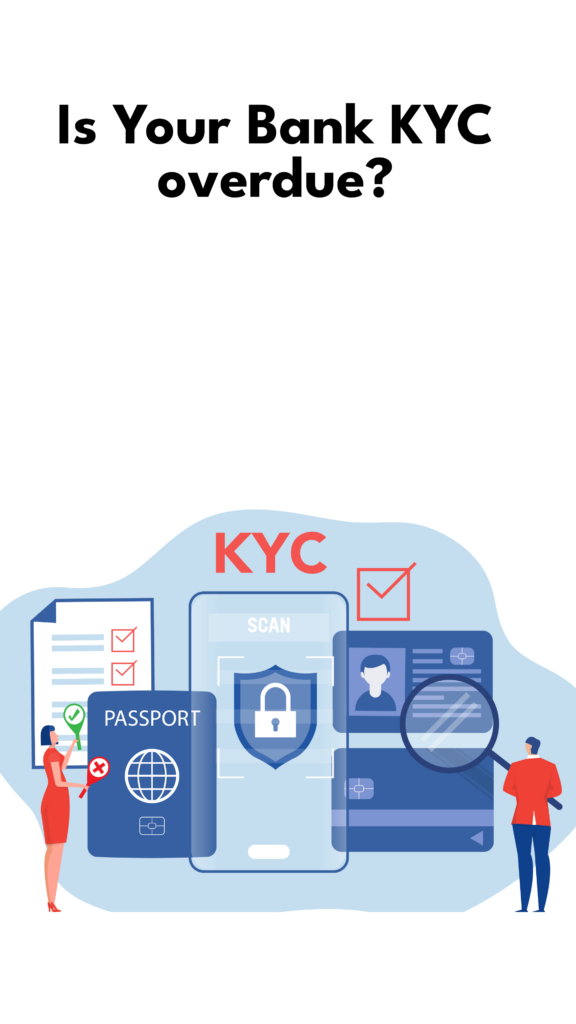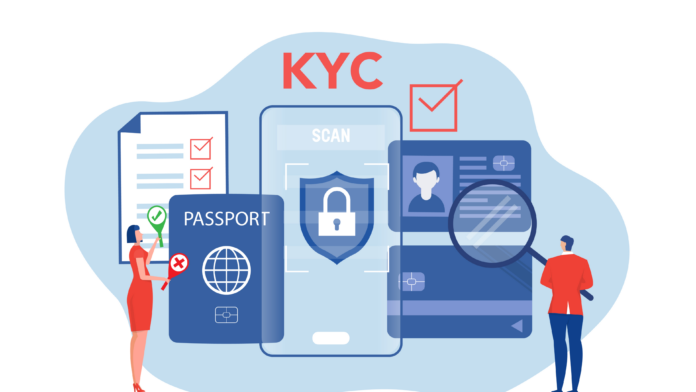So what exactly is this bank KYC scam? Imagine you receive a call or an SMS from your Bank which goes something like this – “Sir, Your KYC is due, if you don’t do it by end of the day, your account will be closed, or the bank will freeze your account and you won’t be able to make any transactions.“ The SMS might have a link to the bank’s website for updating the KYC details as given below:
Table of Contents
What do you do in such an “urgent” situation?
You obviously don’t want your account to get closed. So, if you click on the link in the SMS to update your KYC details, your bank balance will witness debit transactions within seconds, and you won’t even know what just happened.

What is the Bank KYC scam?
Well in actuality, it is not your bank but cyber criminals posing as your bank who make such calls or send these types of SMS. The link in the SMS is a malicious link that leads you to a dummy bank website that is used to gather your credentials & confidential details. The criminals then use this to access your bank account remotely and then dupe you of your hard-earned money in what is known as online KYC or bank KYC due fraud.
Noted Bollywood actor, Annu Kapoor, recently fell for this fraud and lost around Rs. 4 lakhs. He was lucky to get back ~70% of his money with the help of the Mumbai Police but not everyone can be equally lucky.
Scammers constantly evolve their tactics, devising sophisticated scams that can fool even the most vigilant among us. ‘5 Sophisticated Scams That Can Happen to You‘ dives into these advanced scams, highlighting how they work and the red flags to watch out for. From employment scams to online marketplace frauds, understanding these scams is crucial for your financial safety.
What to do if your bank sends you a KYC overdue SMS?
- Enquire from the caller of his identity, and check whether he/she is a genuine bank employee or not. Ask them about your Bank account details. If they don’t know your A/c number, branch details, IFSC code, etc., then how do they know whether your account is overdue for KYC?
- You might want to visit your bank branch to confirm if your KYC is actually overdue or not.
- KYC requires furnishing ID proof and Address documents to the Bank, not sharing OTPs. Prefer any communication over e-mail or in hard copy for documentation purposes. You can ask the caller to share his/her official email ID and you can submit the documents over email.
- Don’t click on any links received in an SMS from a random or unknown private number.
In the realm of scams, the manipulation of fear is a common tactic used by fraudsters. Our article, ‘Unveiling the Dark Art of Fear: 5 Unique Scams Exploiting Your Emotions‘, explores the psychological tricks scammers use to exploit victims. By creating a sense of urgency or fear, they aim to cloud your judgment. Learning about these scams will empower you to stay calm and make informed decisions in stressful situations.
As we navigate the digital age, the threat of cyber crimes continues to grow, affecting countless individuals. Our guide, ‘Tips to Safeguard from Cyber Crime & Fraud Case‘, outlines practical steps you can take to protect yourself online. From secure password practices to recognizing phishing attempts, these tips are invaluable for anyone looking to enhance their digital security.
What if you fall prey to the bank KYC scam?
Immediately report the debit transactions to your Bank on their helpline number. Keep the helpline number handy, if you don’t have it. Please don’t google it, but instead go to the Bank’s website and look for it there.
Next, report such frauds or fraud attempts on the Cyber Crime Helpline no. – 1930 or on the cyber crime reporting website – www.cybercrime.gov.in
Fill in all the required details regarding the transaction number, Bank A/c number, Phone number from which calls were received, etc., for quick action.
Beyond digital frauds, traditional banking methods like cheques also carry risks of fraud. ‘How to Fill Cheque Correctly & Avoid Frauds‘ provides essential tips for securely filling out cheques to prevent tampering and fraud. From using the correct pen to the precise way of writing amounts, these precautions can save you from potential financial losses.
Vigilance is your best defence against scams and frauds. For more insights on protecting yourself and staying one step ahead of fraudsters, subscribe to our newsletter – ‘The Success Circle‘. Receive the latest updates, tips, and advice on navigating the complexities of the financial world safely. Stay informed, stay secure. Subscribe now and join our community committed to financial safety.



